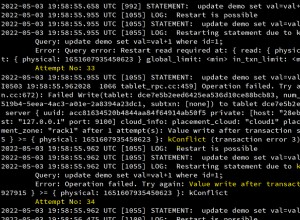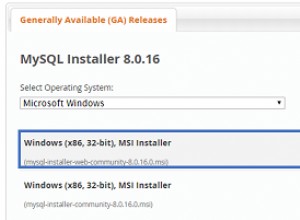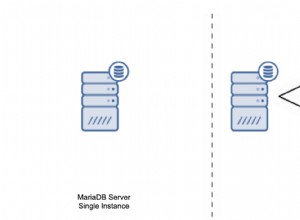Quello che stai cercando di fare difficilmente è possibile nella sua interezza.
Crea SQL dinamico
Innanzitutto, ecco cosa puoi do:una funzione plpgsql che crea l'SQL per tale query:
CREATE OR REPLACE FUNCTION f_union_common_col_sql(text, text)
RETURNS text
AS $function$
DECLARE
_cols text;
BEGIN
_cols := string_agg(attname, ', ')
FROM (
SELECT a.attname
FROM pg_attribute a
WHERE a.attrelid = $1::regclass::oid
AND a.attnum >= 1
INTERSECT
SELECT a.attname
FROM pg_attribute a
WHERE a.attrelid = $2::regclass::oid
AND a.attnum >= 1
) x;
RETURN 'SELECT ' || _cols || '
FROM ' || quote_ident($1) || '
UNION
SELECT ' || _cols || '
FROM ' || quote_ident($1);
END;
$function$ LANGUAGE plpgsql;
COMMENT ON FUNCTION f_union_common_col_sql(text, text) IS 'Create SQL to query all visible columns that two tables have in common.
# Without duplicates. Use UNION ALL if you want to include duplicates.
# Depends on visibility dicatated by search_path
$1 .. table1: optionally schema-qualified, case sensitive!
$2 .. table2: optionally schema-qualified, case sensitive!';
Chiama:
SELECT f_union_common_col_sql('myschema1.tbl1', 'myschema2.tbl2');
Ti dà la query completa. Eseguilo in una seconda chiamata.
Puoi trovare quasi tutto ciò che ho usato qui nel manuale sulle funzioni di plpgsql .
La funzione aggregata string_agg()
è stato introdotto con PostgreSQL 9.0. Nelle versioni precedenti dovresti:array_to_string(array_agg(attname), ', ') .
Eseguire SQL dinamico?
Quindi, ecco cosa a malapena puoi fare:
CREATE OR REPLACE FUNCTION f_union_common_col(text, text)
RETURNS SETOF record AS
$BODY$
DECLARE
_cols text;
BEGIN
_cols := string_agg(attname, ', ')
FROM (
SELECT a.attname
FROM pg_attribute a
WHERE a.attrelid = $1::regclass::oid
AND a.attnum >= 1
INTERSECT
SELECT a.attname
FROM pg_attribute a
WHERE a.attrelid = $2::regclass::oid
AND a.attnum >= 1
) x;
RETURN QUERY EXECUTE '
SELECT ' || _cols || '
FROM quote_ident($1)
UNION
SELECT ' || _cols || '
FROM quote_ident($2)';
END;
$BODY$
LANGUAGE plpgsql VOLATILE;
COMMENT ON FUNCTION f_union_common_col(text, text) IS 'Query all visible columns that two tables have in common.
# Without duplicates. Use UNION ALL if you want to include duplicates.
# Depends on visibility dicatated by search_path
# !BUT! you need to specify a column definition list for every call. So, hardly useful.
$1 .. table1 (optionally schema-qualified)
$2 .. table1 (optionally schema-qualified)';
Una chiamata di funzione richiede di specificare l'elenco delle colonne di destinazione. quindi questo non è affatto utile:
SELECT * from f_union_common_col('myschema1.tbl1', 'myschema2.tbl2')
ERROR: a column definition list is required for functions returning "record"
Non c'è un modo semplice per aggirare questo. Dovresti creare dinamicamente una funzione o almeno un tipo complesso. Qui è dove mi fermo.




